In this article, I will cover managing cross-chain assets in a single wallet. While having to manage crypto on different blockchains can be complicated, using one multi-chain wallet makes it easier.
Such a wallet will let you track different balances, perform cross-chain swaps, and interact with DeFi apps without hassle.
This guide outlines the most effective tips and tools and the best practices for managing your crypto for maximum efficiency and flexibility.
What Is a Cross-Chain Wallet?
A cross-chain wallet is a crypto wallet that enables users to manage, store, and send assets across multiple blockchains within a single interface.
Cross-chain wallets offer to manage multiple blockchains unlike typical wallets which are restricted to a single network. Users can manage multiple ecosystems including Ethereum, BNB Chain, Polygon, and Solana seamlessly.
Cross-chain wallets come with streamlined bridging and token swapping capabilities, allowing users to move tokens across chains all from a single wallet.
Offering all these capabilities simplifies, accelerates, and reduces the cost of portfolio management and enhances interoperability in an increasingly multi-chain crypto ecosystem.
How To Manage Cross-Chain Assets in One Wallet
Install MetaMask
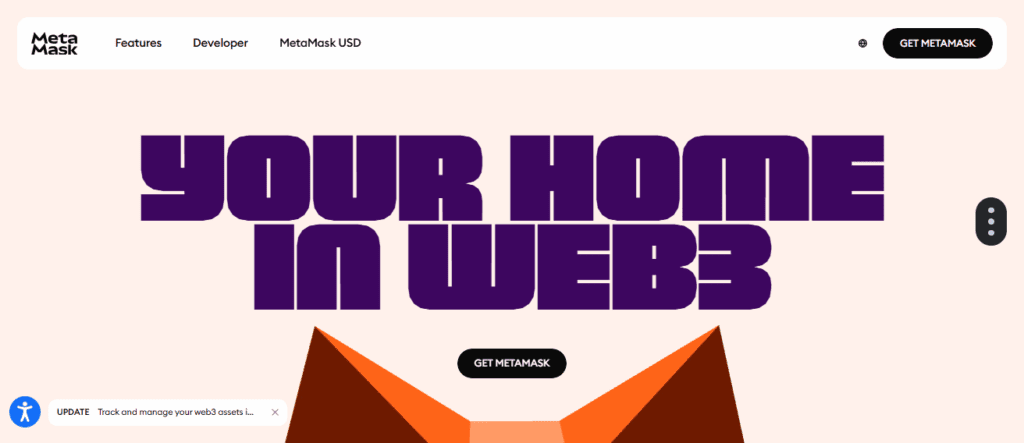
Get the MetaMask extension for your browser or the mobile app, then create a wallet or import an existing one using your seed phrase.
Add Multiple Networks
Head to the wallet settings, then click on Networks, and finally, Add Network. Add chains like Ethereum, BNB Chain, and Polygon or any others you want to manage.
Deposit or Receive Assets
You can send tokens from different blockchains to their respective network addresses in MetaMask.
Use Cross-Chain Bridges
Connect MetaMask to a cross-chain bridge or a supported DApp. You can easily swap and transfer tokens across different blockchains.
Track and Manage Assets
You can manage and view all assets for all supported blockchains from one wallet. You can track tokens, and transactions and manage token activities from one wallet.
Secure Your Wallet
Always back up your seed phrases and private keys. Weak wallet security can be ignored. Always weak biometric security, and the option to integrate a hardware wallet should be enough.
Top Cross-Chain Wallets In 2025
1. Trust Wallet
As a mobile wallet, Trust Wallet is one of the most flexible. It is compatible with over 100 blockchains such as Ethereum, BNB Chain, Solana, and Polygon.
It lets users confidently store various tokens, and send and receive tokens in a single user interface.
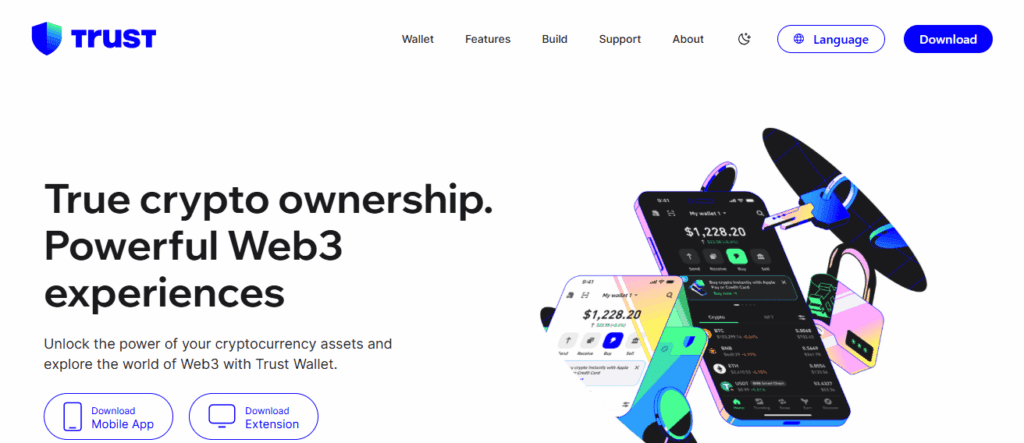
Trust Wallet boasts advanced features such as staking DApp, and cross-chain swaps, making multi-chain asset management seamless.
Its ease of use and high-security level (private keys are stored on the device) caters to both crypto management newbies and experts.
2. Coin98 Wallet
Emphasizing cross-chain functionality, Coin98 Wallet is a DeFi-focused multi-chain wallet. With it, users can seamlessly move assets using built-in cross-chain swaps and avoid third-party services.
Directly from the wallet, users can interface with DeFi protocols and manage liquidity, which can be done by staking, lending, and providing liquidity.
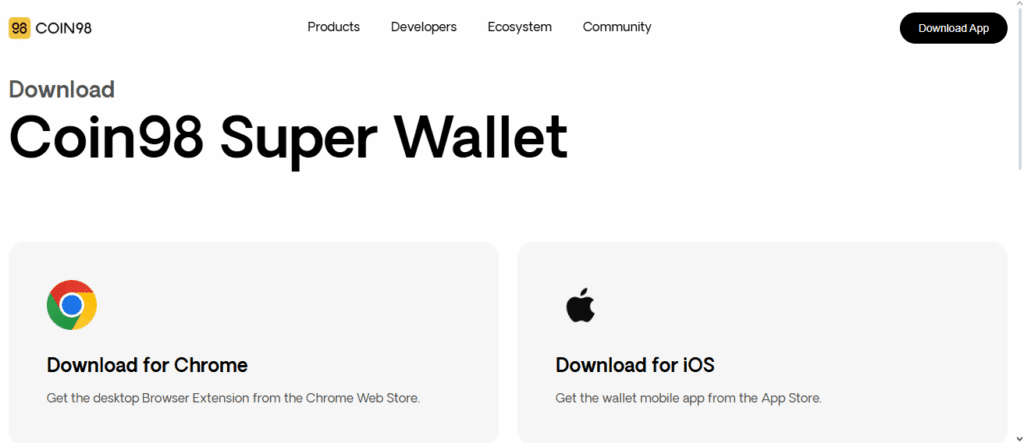
Its clean interface, secure management, and direct access to DeFi allow users to efficiently monitor and manage their multi-chain portfolio, which is why it’s a top choice for active DeFi users.
3. OKX Wallet
OKX Wallet is a multichain wallet which is aimed at novices as well as advanced individuals.
It is compatible with major blockchains and comes with an inbuilt bridge that allows hassle-free transfers of assets between blockchains.
The built-in DApp browser allows users to access and engage with decentralized applications such as DeFi and NFT marketplaces.
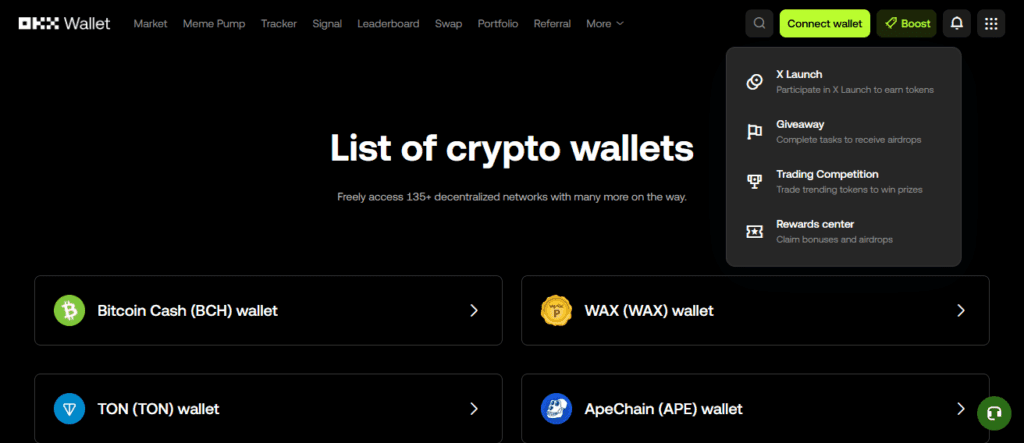
OKX Wallet combines advanced security features, control of private keys, effortless network switching, and cross-chain assets management to consolidate multiple wallets into one.
It is perfect for users that prioritize time and efficiency without the need for multiple wallets.
4. Rabby or XDEFI Wallet
Rabby and XDEFI Wallet are multichain wallets designed for DeFi and active traders. They emphasize cross-asset compatibility and control, the ability to manage cross-chain assets on Ethereum, BNB Chain, Polygon and other chains.
The wallets are designed with portfolio management, cross-chain swaps, and DApp interactions on a single user interface, streamlining the process for users with advanced cryptocurrency portfolios.
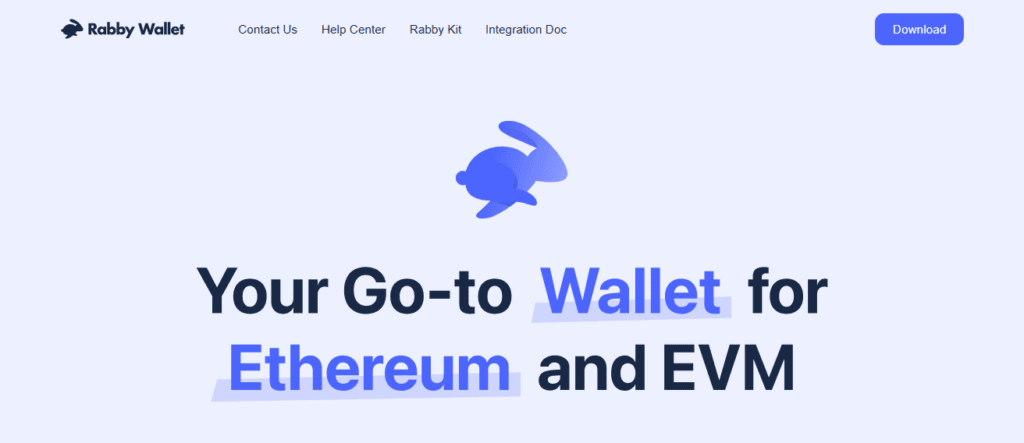
The wallets have safe private key and multiple token access making them ideal for users engaging with DeFi, NFT trade and cross-chain movements.
Benefits of Managing Cross-Chain Assets in One Wallet
Convenience and Accessibility
Cross-chain assets managed within a single wallet empower users to switch between multiple blockchains without the hassle of wallet changes.
Reduced Transaction Fees and Time
Fewer wallets mean less costs and time spent on transactions due to the efficient processing of cross-chain transfers.
Improved Portfolio Tracking and Analytics
Having all your assets within a single wallet simplifies the process of monitoring their balance and performance over time.
Enhanced User Experience and Security Integration
Having all your assets consolidated increases usability, and offers advanced integrated protective security features like monitoring transactions.
Tips for Safe Cross-Chain Management
Verify bridge smart contracts before using them: Always confirm bridge contracts are legitimate to avoid losing funds.
Avoid suspicious links or fake wallet extensions: Click unknown links or install unverified wallet extensions.
Use hardware wallets for large holdings: For large holdings, use hardware wallets for additional protection.
Keep software and extensions updated: To patch software vulnerabilities, perform regular updates on your wallets.
Always double-check transaction details and chain compatibility: Before a transaction, verify the addresses, amounts, and chains.
The Future of Cross-Chain Wallets
As interoperability solutions such as Cosmos, Polkadot, and LayerZero gain traction, the development of cross-chain wallets is becoming ever more sophisticated and the seamless transfer of assets across a number of blockchains is becoming more common.
The use of decentralized identity (DID) and the provision of unified asset dashboards will enable users crypto portfolios to be managed under one system that can be accessed with a single login.
Furthermore, the use of AI for portfolio management coupled with on-chain analytics will deliver sophisticated insights, incorporate predictions, and enable automated management
Providing more efficiency for cross-chain asset management, and greater accessibility for novice and working crypto investors.
Conclusion
In Conclusion Having cross-chain assets consolidated into one wallet provides the simplification needed for effective crypto management as it offers ease, safety, and optimization.
Clients can manage their portfolios, perform cross-chain swaps, and engage with numerous DeFi apps with practically no interruptions. Their wallets, such as MetaMask, Trust Wallet, or Coin98, let them accomplish all of these tasks at the same time.
A single wallet can achieve the consolidation needed to truly unify all crypto assets spanning various blockchains with the proper use of security measures and knowledge of bridging tools.
FAQ
A wallet that manages assets across multiple blockchains in one interface.
Popular options include MetaMask, Trust Wallet, Coin98, OKX Wallet, and XDEFI/Rabby Wallet.
Go to wallet settings → Networks → Add Network, then enter required chain details.
Yes, using integrated cross-chain bridges or swap features.
Use verified bridges only, and double-check smart contract details to prevent risks.










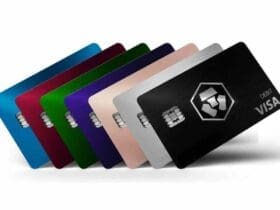
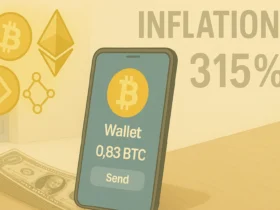

Got a Questions?
Find us on Socials or Contact us and we’ll get back to you as soon as possible.